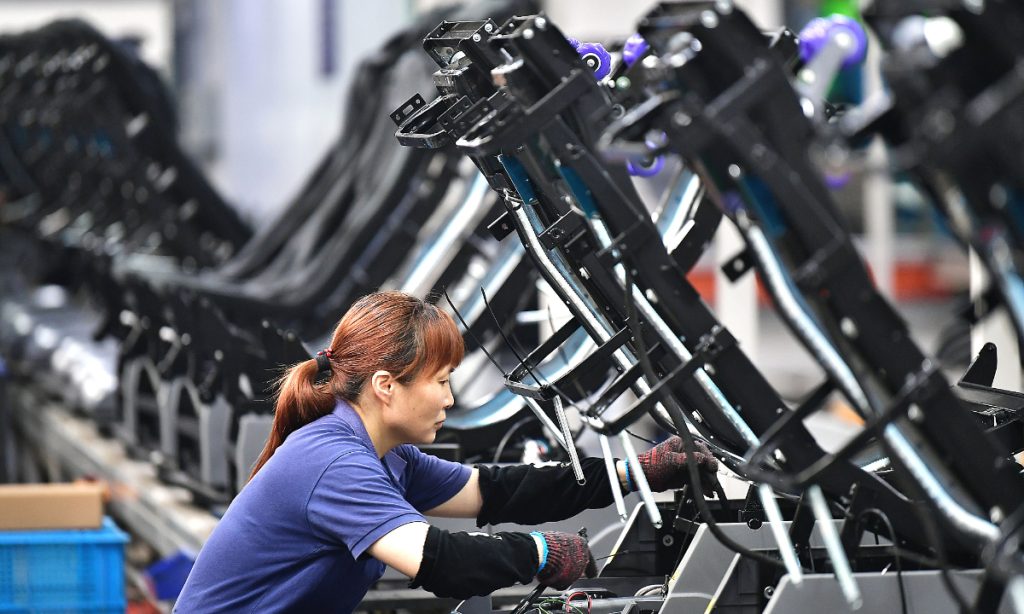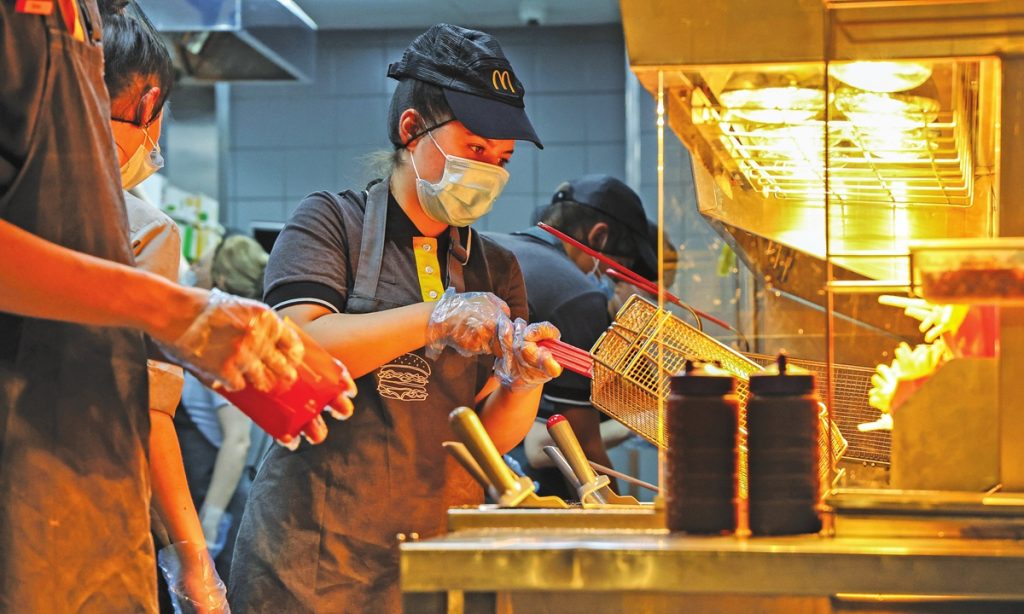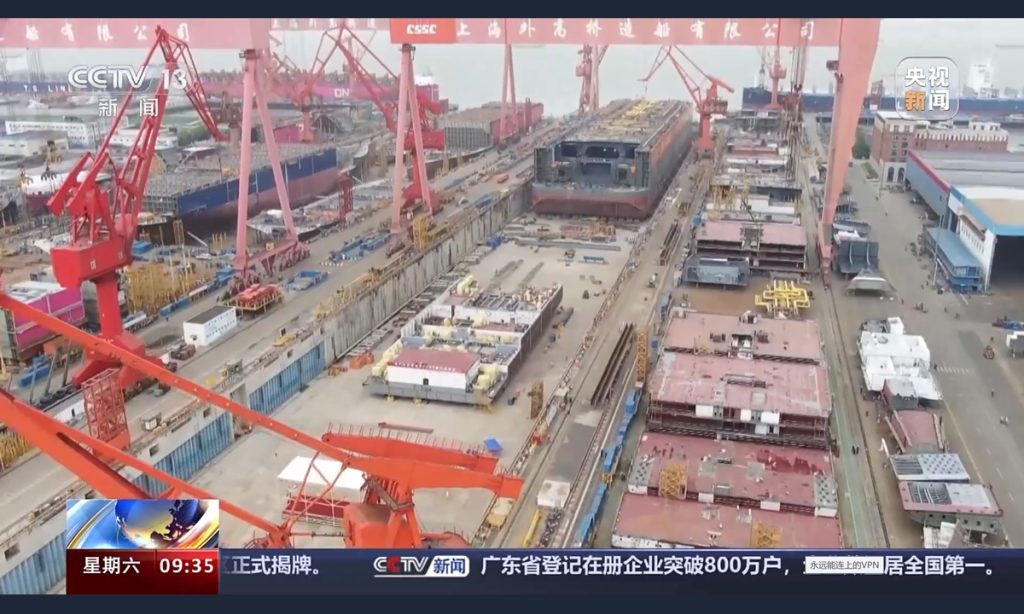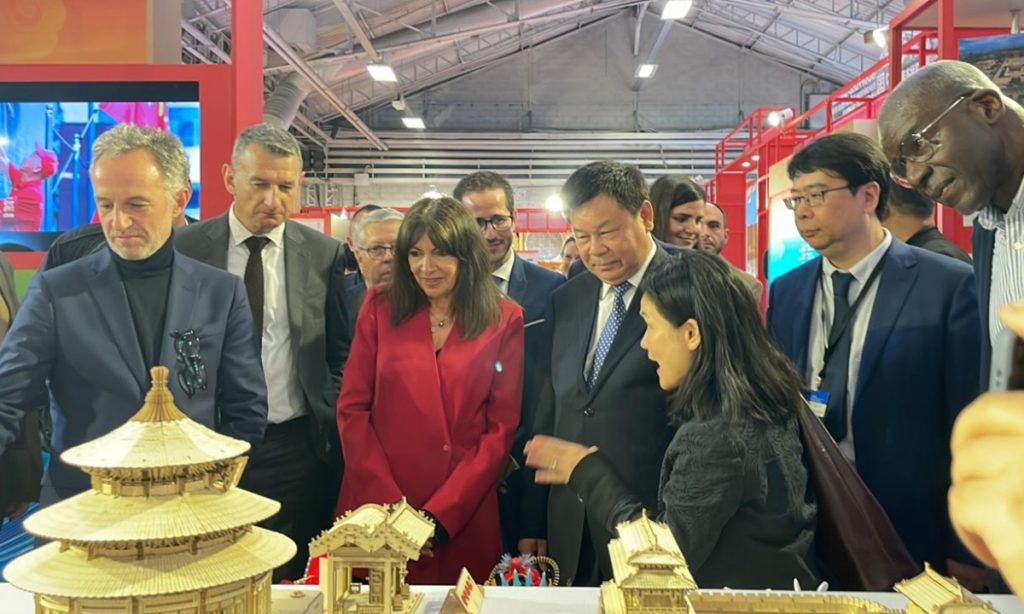Chinese economy maintains stable growth in April, with industry, exports indicators improving moderately

China's economy maintained stable growth in April, with key indexes on industry, exports, employment and price improving moderately from March, data released by the National Bureau of Statistics (NBS) showed on Friday, underscoring that the world's second-largest economy has been sustaining the solid recovery momentum since the beginning of the year despite facing multiple global and domestic headwinds.
Analysts predicted that China's GDP could grow at a rate between 5.3 and 5.5 percent in the second quarter, slightly up from the 5.3-percent growth recorded in the first quarter. And the economy is set to unleash more potential in the second half, as a package of stimulus measures, including the issuance of ultra-long-term special treasury bonds and supports on property industry, take effect and as global demand continued to bounce back.
China's industrial production jumped 6.7 percent year-on-year in April, compared with a 4.5-percent growth in March, NBS data showed. In April, retail sales gained 2.3 percent year-on-year, down from the March reading of 3.1 percent.
Fixed-asset investment rose 4.2 percent year-on-year in the first four months, slowing down from the 4.5 percent growth in the first three months.
"China's economy remained stable in April. Although some indicators recorded a moderate growth rate as affected by factors such as staggered holiday arrangement and a relatively high base in the same period last year, major indicators of industry, exports, employment and prices improved, with new driving forces maintaining rapid growth," NBS spokesperson Liu Aihua said at a press briefing of the State Council Information Office on Friday.
"One of the economic highlights from the April data is the robust growth in high-end manufacturing, which beats market expectation," Cao Heping, an economist at Peking University, told the Global Times on Friday.
He said that some of economic data in April has overall improved mildly compared with March reading, which bodes well for the growth in the second quarter. Cao projected that the GDP growth in the April-June period would speed up 0.1 percentage point to 0.2 percentage point from the first quarter.
"Considering China's prodigious economic scale, any growth between 4.5 and 5.5 percent should be sound and sustainable," Cao noted. Analysts exemplified that if China's GDP growth hit over 5 percent per year, the increase in China's economic volume could roughly equate to the economic output of Switzerland, which is now the world's 20th-largest economy.
China's robust economy in the first four months has proved that the US government's reckless suppression of Chinese industries, which it attempted to justify by labeling the "overcapacity" claim on Chinese exports, is futile and doomed to lose traction in global arena, analysts said.
Analysts expected that China's economic growth will contribute around 35 percent to the global economic development this year, further consolidating its role as both a stabilizer and key locomotive of the world economy.
China on Friday issued the first batch of 1 trillion yuan ($140 billion) in ultra-long-term special treasury bonds, as the authorities seek more funding to shore up government spending and strategically important projects' investment for high-quality economic development.
"The bond issuance needs to be completed as early as possible, considering that there is still some softness in the economy," Tian Yun, a veteran economist based in Beijing, told the Global Times.
He expected more measures to be unveiled to shore up the property sector, which remains a drag on the economy in the first quarter.
Cao noted that it would take two to three months for the effects of ultra-long-term treasury bonds issuance to bear fruits, and that in turn would elevate the whole-year GDP growth by 0.1-0.3 percent.
China's trade in goods in the first four months of 2024 recorded an increase of 5.7 percent year-on-year to reach 13.81 trillion yuan, data from China's General Administration of Customs showed last Thursday.






